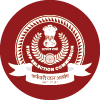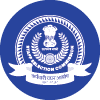Amendment in Rule 6
Source: The Hindu
Why in News?
Recently, the Department of Personnel and Training (DoPT) wrote to the States that the Union government proposes to amend Rule 6 (deputation of cadre officers) of the Indian Administrative Service (Cadre) Rules 1954.
Under this, the Union government will acquire for itself overriding powers to transfer IAS and IPS officers through Central deputation, doing away with the requirement of taking the approval of the State governments.
Key Points
All India Services (AIS):
About: The All India Services (AIS) comprises the three civil services of India:
Indian Administrative Service (IAS);
Indian Police Service (IPS); and
Indian Forest Service (IFoS).
Federal Nature of AIS Officers: AIS officers are recruited by the Union Government (by UPSC) and their services are allotted under various State Cadres.
Hence, they have the accountability to serve both under the State and the Centre.
However, the Cadre Controlling Authority of AIS is the Union Government.
The DoPT is the cadre controlling authority of IAS officers.
Cadre controlling authority for deputation of Indian Police Service and Indian Forest Service Officers (IFoS) is the Ministry of Home Affairs (MHA) and the Environment Ministry respectively.
Central Deputation Reserve: The State government has to prescribe a number of officers available for deputation as prescribed under Central Deputation Reserve.
Every State cadre of the service provides for a Central deputation quota which in turn requires additional recruitment to be made to the service to provide for trained and experienced members to serve on posts in the Central Government.
Deputation of AIS Officer and Present Rules:
In normal practice, the Centre asks every year for an “offer list” of officers of the All India Services willing to go on central deputation, after which it selects officers from that list.
Officers have to get a no-objection clearance from the State government for Central deputation.
States have to depute the All India Services (AIS) officers, to the Central government offices and at any point, it cannot be more than 40% of the total cadre strength.
Proposed Amendments:
If the State government delays posting a State cadre officer to the Centre and does not give effect to the Central government’s decision within the specified time, the officer shall stand relieved from cadre from the date as may be specified by the Central government.
The Centre will decide the actual number of officers to be deputed to the Central government in consultation with the State and the latter should make eligible the names of such officers.
In case of any disagreement between the Centre and the State, the matter shall be decided by the Central government and the State shall give effect to the decision of the Centre.
In specific situations where services of cadre officers are required by the Central government in “public interest,” the State shall give effect to its decisions within a specified time.
DoPT Stand:
The DoPT said that it is taking this decision in the wake of a shortage of All India Services (AIS) officers in Union Ministries.
According to the DoPT, states are not sponsoring an adequate number of officers for Central deputation, and the number of officers is not sufficient to meet the requirement at the Centre.
Opposition by Some States:
- It is against the spirit of cooperative federalism.
- The proposed amendment would weaken the State’s political control over the bureaucracy.
- It would hobble effective governance and create avoidable legal and administrative disputes.
- The Centre could weaponise the bureaucracy against an elected State government.





